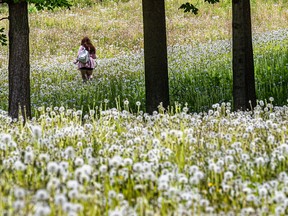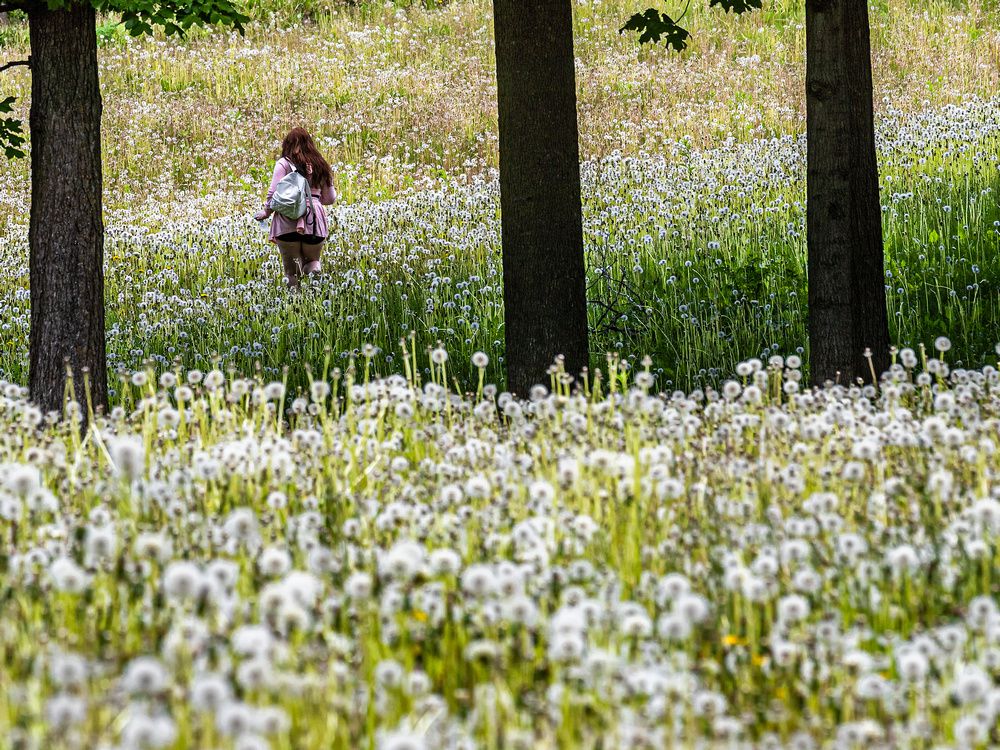[ad_1]
Six golf courses were identified as needing priority attention under the new regulation.

Article content
A new bylaw protecting golf courses in the Greater Montreal region from real-estate development was announced Thursday in the latest bid to protect vulnerable green spaces in urban environments in and around the city.
Article content
Montreal Mayor Valérie Plante announced that the Montreal Metropolitan Community (CMM) had passed a bylaw to curb potential development on golf courses that could be converted into green spaces or nature parks in the future.
The regulation comes a few weeks after the CMM passed a similar interim control bylaw to temporarily outlaw all construction, redevelopment and work on land of ecological value across the 82 municipalities of the Greater Montreal region while it works to ensure more sustainable development policies. The regulation extended the protection of green spaces and wetlands within its territory by an additional 12,367 hectares.
That law was given official approval by the Quebec government Thursday, by Chantal Rouleau, minister responsible for the Montreal region, at a meeting of the CMM in Montreal.
Article content
“Natural spaces and green spaces … are the pillars of our ecological transition and our objective is to bring the total amount of protected territory to 17 per cent in the greater region of Montreal,” Plante said. “Seventeen per cent is good, but we have to go even further and we don’t have any more time to lose.”
Six golf courses were identified as needing priority attention under the new regulation: Golf Beloeil, the Candiac Golf Club, the Chambly municipal course, the Mascouche Golf Club, the former Rosemère Golf Club and the Le Boisé Club in Terrebonne. The golf courses cover nearly 284 hectares and are all in urban areas.
More sectors to be protected, including other golf courses, will be identified in a second phase.
Article content
In the last decade, 12 golf courses in the Montreal region were taken over by real-estate promoters to erect housing developments, according to research compiled by the CMM.
Patrick Bonin, a member of the Rosemère Vert organization that is fighting to keep the former Rosemère golf course as a green space, welcomed the announcement.
“The adoption of the (new bylaw) by the CMM is excellent news and a great first step as we hope that all golf courses and former golf courses will be protected and not be paved over,” he said.
“This ‘moratorium’ on the development of six former golf courses, including that of Rosemère, is not a final victory for the protection of the former golf course site. But it is of crucial importance to protect the last large green space in Rosemère.
“This victory would not have been possible without the Rosemère residents who have invested hundreds of volunteer hours with the objective of protecting this jewel with unique potential. It’s also important to credit the elected officials of the Town of Rosemère who are increasingly attentive to the will of the population to protect and restore the site with a view to making it a major park that will improve the environment and the health of the population.
“We are now asking the provincial political parties to commit to quickly amend the expropriation law and to financially assist cities so they can buy golf courses and former golf courses at their fair market value.”
In their announcement, the CMM also called on the Quebec government to invest $100 million in preserving green and blue corridors of wilderness, ecological spaces that would allow wildlife to live and migrate safely.
Linda Gyulai of the Montreal Gazette contributed to this report
-

Western chorus frogs get breathing room as green space protections extended
-

Hanes: Montreal group acts to protect dwindling natural assets
[ad_2]
Source link
